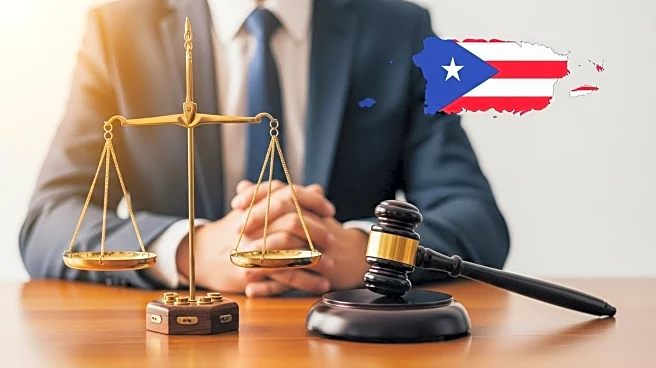What is the story about?
What's Happening?
Three members of the federal control board overseeing Puerto Rico's finances have filed a lawsuit against President Trump and other officials, claiming their dismissals were illegal. The lawsuit, filed in federal court, challenges the removal of Arthur J. Gonzalez, Andrew G. Biggs, and Betty A. Rosa, who were dismissed by email without cause or justification. The board was established under the Promesa Act in 2016 to manage Puerto Rico's financial crisis, including its massive public debt. The lawsuit argues that President Trump lacks the authority to terminate these members, as they are not part of the executive branch. The case highlights concerns over presidential power and its impact on territorial governance.
Why It's Important?
The lawsuit underscores significant legal and political implications regarding the authority of the U.S. President over territorial governance. If the court sides with the plaintiffs, it could set a precedent limiting presidential power in removing territorial officers, potentially affecting governance structures in other U.S. territories. The board's role in managing Puerto Rico's financial crisis is crucial, and changes in its composition could influence ongoing debt restructuring negotiations. The outcome of this case could impact Puerto Rico's economic recovery and its relationship with the federal government, affecting stakeholders such as bondholders and local government officials.
What's Next?
The court's decision on the lawsuit will determine whether the dismissed board members are reinstated, potentially affecting the board's operations and its approach to debt restructuring. If the court rules against President Trump, it may lead to increased scrutiny of executive actions concerning territorial governance. The case could prompt legislative or judicial reviews of the Promesa Act and similar laws governing U.S. territories. Stakeholders, including political leaders and financial institutions, will be closely monitoring the case for its implications on Puerto Rico's financial management and broader territorial governance issues.
Beyond the Headlines
The lawsuit raises broader questions about the balance of power between the federal government and U.S. territories. It highlights the complexities of territorial governance and the potential for executive overreach. The case may influence future discussions on the autonomy and self-governance of U.S. territories, prompting debates on legal and constitutional protections for territorial officials. Additionally, the case could impact Puerto Rico's political landscape, affecting its interactions with federal authorities and its pursuit of economic stability.















